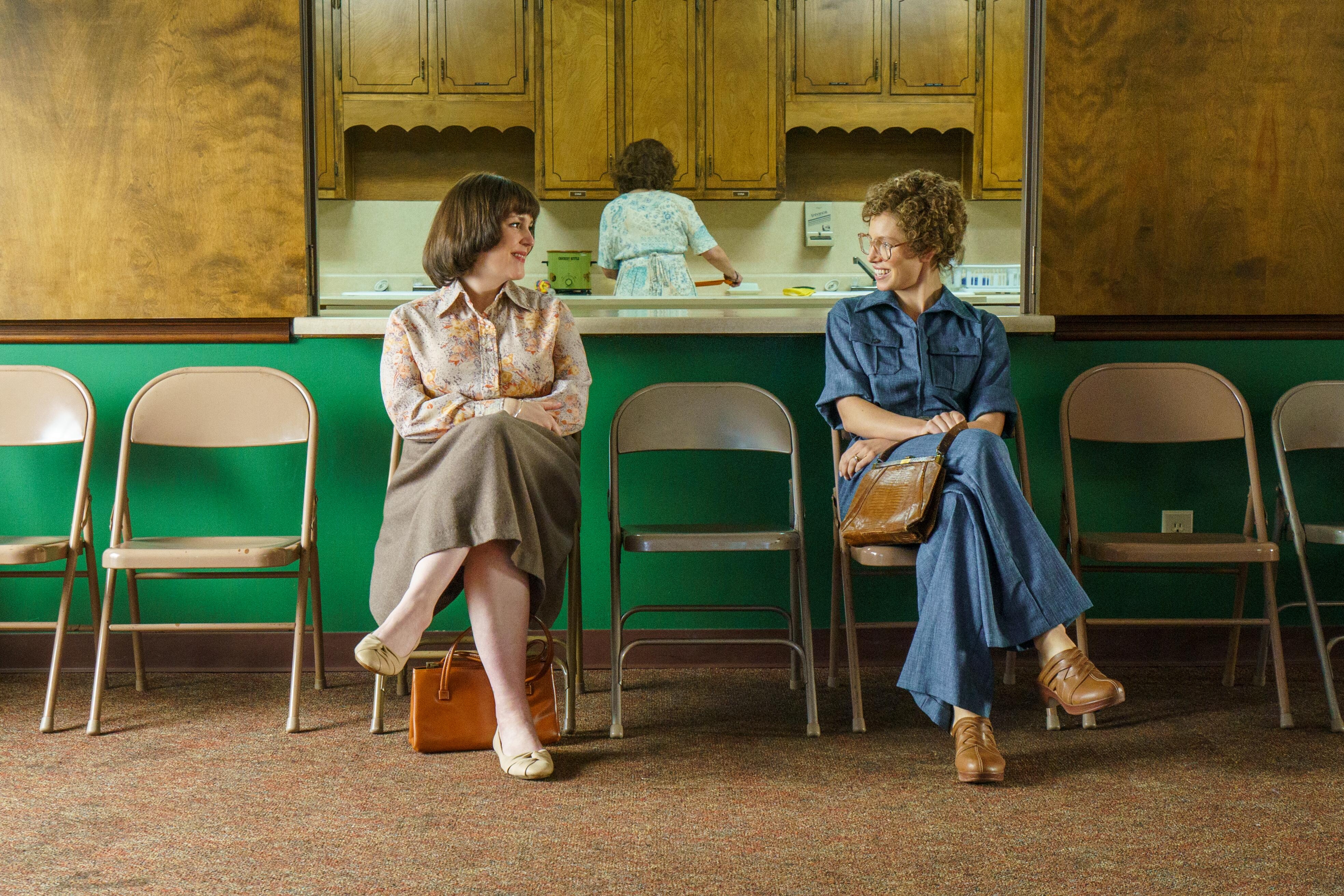Hulu's Candy insults with sexist crime caper, worse wigs
Jessica Biel plays an accused axe murderer opposite Melanie Lynskey in this mediocre miniseries

The axe murder of Betty Gore isn’t the only attack on women in Hulu’s Candy, a screamingly sexist limited series even the most fervent true-crime fans can safely skip. Created by Nick Antosca (The Act) and Robin Veith (Mad Men), this five-part docudrama takes on the infamous case of Candy Montgomery, a Texas housewife who hacked up her supposed best friend amid a love triangle in the summer of 1980. With former The Sinner star Jessica Biel playing Montgomery and Yellowjackets’ Melanie Lynskey as Gore, Candy has the cast, time period, and setting needed to thoughtfully consider how patriarchal pressures sometimes spur suburban women to violence. But instead, this overstretched mess delivers half a day’s worth of slut-shaming that does little more than masquerade as being about—or for—anyone with a vagina.
Candy kicks off with the sensational crime in question, though we don’t see exactly how Gore ended up so…well, gory until much later. Montgomery is introduced at the start of a busy day, flanked by her kids (Aven Lotz and Dash McCloud) and Gore’s eldest daughter Christina (Antonella Rose)—who, yes, was really being babysat by the Montgomerys when her mother was killed. Biel’s saccharine Candy buzzes between phone calls with her oblivious husband Pat (Timothy Simons) and a never-ending cycle of errands. Like a cheery train conductor perpetually on schedule, she’s hailed as an “overachiever” by the other moms and exudes a cool efficiency that straddles pleasant and spooky. Meanwhile across town, Lynskey’s Gore is a hysterical wreck, visibly exhausted by a wailing newborn and her absent spouse Allan (Pablo Schreiber).
When Montgomery arrives at Gore’s home 20 minutes into the episode, the diametrically opposed homemakers (one an isolated mother in need of support, the other a borderline super-powered Martha Stewart crony) feel primed for confrontation. And yet, a jump-cut to a shell-shocked Montgomery, sitting in her car post-face off, delays Candy’s explanation for what, or who, brought these women to blows.
Candy is a textbook example of how not to write women, reinforcing stereotypes instead of challenging them.
More whydunnit than whodunnit, the remaining 4 hours and 40 minutes reconstruct (and partially fictionalize) the events surrounding Gore’s death, steadily plodding through Candy’s obsession with Allan, her compulsive curiosity about his wife, and her eventual murder trial. The orbiting talents of Biel and Lynskey make for an initially intriguing dynamic that positions home-wrecking like a keg of domestic dynamite, and the pair’s inevitable showdown is a feminist two-hander for the ages. But confusing narrative direction and utterly baffling character development seriously undercut the promise of that premise.
Told nonlinearly, Candy clumsily switches between before and after Gore’s death with minimal justification for why it does what when. Prior to the axing, it follows Allan’s budding affair and deteriorating marriage simultaneously, inexplicably failing to position him as responsible for either.
Biel, always excellent at conveying character motivation, portrays Montgomery as an undersexed mom-turned-passion-seeking missile. Lynskey, superb in rendering nuanced portraits, channels Gore as a mousy Fried Green Tomatoes-type on the brink of going full “Towanda.” This pairing of strongly gendered performances would be fine if Candy used them to critique the virgin/harlot dichotomy. But as it stands, this series is a textbook example of how not to write women, reinforcing stereotypes instead of challenging them.
After Gore’s death, Lynskey’s clever characterization is reduced to shallow victim status, and Montgomery is further vilified as a teflon whore with a black heart. Sure, Candy apologists could argue Biel anxiously wandering around in a blonde Bob Ross wig is critical, first and foremost, of a murderer. But considering this show goes out of its way to include dialogue commenting on the role of women in society and the god-affronting sin of adultery, that’s as disingenuous as calling these two “friends.”